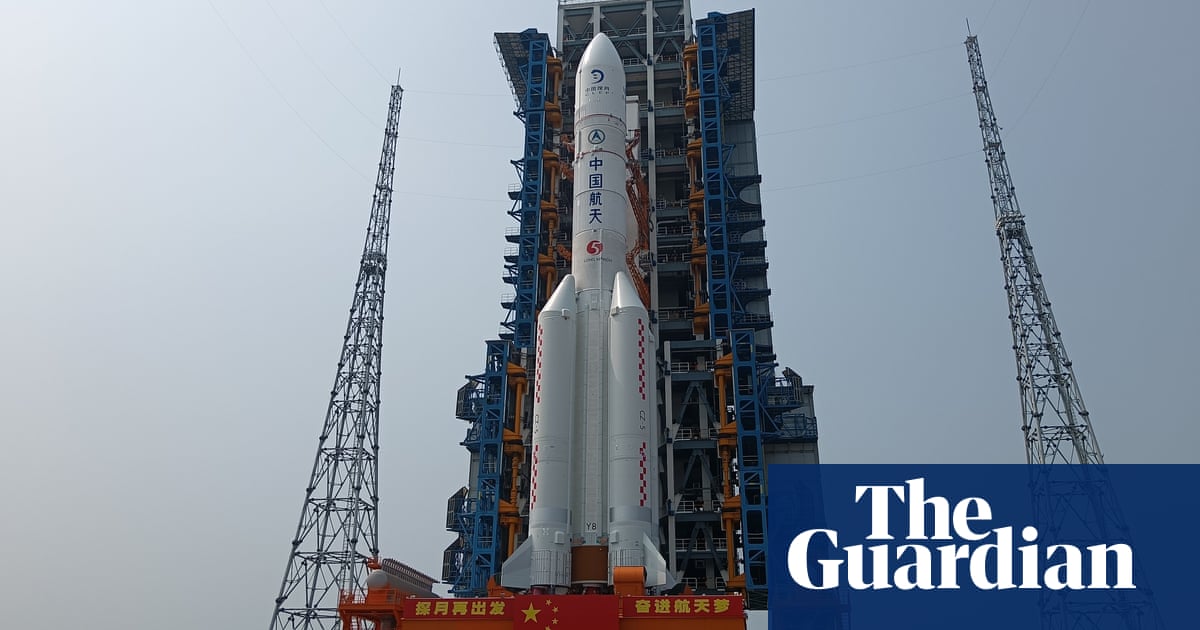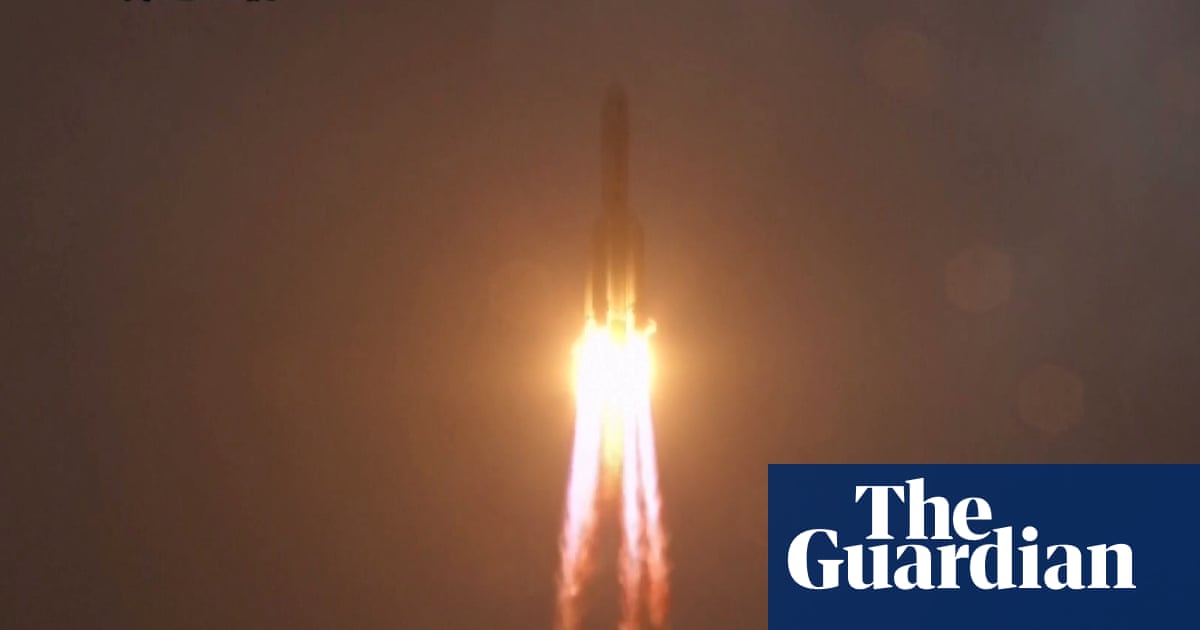
China will attempt another mission to the far side of the moon on Friday, the first of three planned over coming years as part of its goal to land a human on the lunar surface by 2030.
The launch of the uncrewed Chang’e-6 is expected sometime between 8.30am GMT and 11am GMT and the mission – if successful – would go far to bolster China’s ambitions to put a man on the moon by 2030.
However the mission has also drawn concern from China’s major rival, the US, over Beijing’s geopolitical intentions amid what the head of Nasa has called a new “space race”.
Since the first Chang’e mission in 2007, named after the mythical Chinese moon goddess, China has made leaps forward in its lunar exploration, narrowing the technological chasm with the United States and Russia.
With no direct line of sight with the Earth, Chang’e-6 must rely on a recently deployed relay satellite orbiting the moon during its 53-day mission, including a never-before attempted ascent from the moon’s “hidden” side on its return journey home.
The same relay satellite will support the uncrewed Chang’e-7 and 8 missions in 2026 and 2028, respectively, when China starts to explore the south pole for water and build a rudimentary outpost with Russia, in an effort to achieve Beijing’s aim of putting astronauts on the moon by 2030.
As part of its mission, the Chang’e-6 will attempt to retrieve samples from the south pole Aitken Basin, the largest and oldest impact crater on the moon, situated on the side permanently facing away from Earth. Experts say the samples which could answer questions about a significant period of solar system activity billions of years ago.
Should the mission be successful, the Chinese National Space Administration (CNSA) is expected to share the samples internationally, just as it did with the moon rocks collected during the 5th Chang’e mission – the first collected since the US Apollo missions.
That mission in 2020 confirmed for the first time that China could safely return an uncrewed spacecraft to Earth from the lunar surface.
China’s space program is central to the government’s overall national strategy, and is widely celebrated within the country as a demonstration of the nation’s technological advancement.
Beijing’s polar plans have worried Nasa, whose administrator, Bill Nelson, has repeatedly warned that China would claim any water resources as its own. Beijing says it remains committed to cooperation with all nations on building a “shared” future.
Nelson has also warned of China bolstering its space capabilities by using civilian programs to mask military objectives, cautioning that Washington must remain vigilant.












